MercoPress. South Atlantic News Agency
Tag: UN Food and Agriculture Organization, FAO
-
Saturday, January 10th 2015 - 06:28 UTC
FAO Food Price index falls in 20014 on large cereals' supplies and record stocks
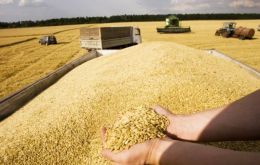
FAO's monthly Food Price Index declined in December after three months of stability. Continued large supplies and record stocks combined with a stronger U.S. dollar and falling oil prices contributed to the decline, which helped bring the 2014 overall Food Price Index down 3.7%.
-
Tuesday, November 11th 2014 - 21:03 UTC
Projected 2014 cereal production trimmed back despite record maize and wheat harvests
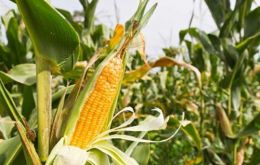
According to FAO's monthly Cereal Supply and Demand Brief release, the forecast for 2014 world cereal production by about one million tons. At 2.5 billion tons, the full-year production figure would be 3.7 million tons below 2013's record output.
-
Wednesday, October 8th 2014 - 20:50 UTC
FAO forecasts shrimp world production could double by 2030

World shrimp production, which currently stands at between 7 and 8 million tons could reach 11 to 18 million tons in 2030, according to projections by the United Nations Food and Agriculture Organization, FAO.
-
Monday, August 11th 2014 - 09:40 UTC
FAO July Food Price Index at its lowest level since January 2014

The FAO Food Price Index averaged 203.9 points in July 2014, down 4.4 points (2.1 percent) from a revised value in June and 3.5 points (1.7 percent) below July 2013. While meat prices rose for the fifth consecutive month and sugar remained firm, sharp declines in grains, oilseeds and dairy quotations pushed down the FAO Food Price Index to its lowest level since January 2014.
-
Wednesday, June 18th 2014 - 08:20 UTC
Obama pledges to crack down on illegal fishing and enforce traceability
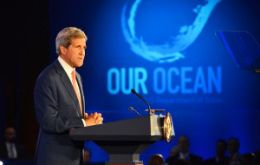
The Obama administration announced on Tuesday an initiative to track every fish sold in the United States, a move designed to crack down on illegal, unreported and unregulated fishing, mislabeling of seafood and related problems.
-
Tuesday, May 20th 2014 - 09:45 UTC
Joint global efforts to stop IUU fishing
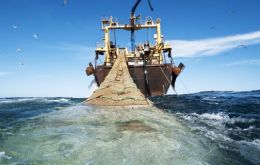
International Seafood Sustainability Foundation (ISSF) president Susan Jackson considers the improvement of vessel registration schemes and the eradication of illegal, unreported and unregulated fishing (IUU) activities should be the top priority for all ocean conservation organizations.
-
Saturday, May 10th 2014 - 00:45 UTC
Latam and Caribbean committed to eradicate hunger in the region by 2025
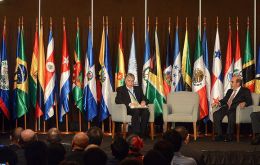
Countries of Latin America and the Caribbean have advanced a robust agenda aimed at achieving the eradication of hunger in the region, during a major FAO meeting which concluded on Friday in Chile.
-
Saturday, May 10th 2014 - 00:05 UTC
Despite some setbacks, FAO expects second largest cereal production this year
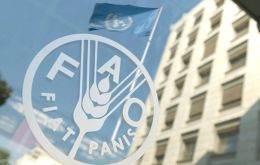
Weather conditions in various countries and political tensions in the Black Sea region have made food markets more volatile, FAO reports in the new Food Outlook. In its first major forecast for 2014, FAO puts cereal production at 2 458 million tons (including milled rice), down some 2.4% from the 2013 record, though global output is still expected to be the second largest ever.
-
Thursday, February 27th 2014 - 03:19 UTC
Booming world fish trade generating more wealth than ever, says FAO report
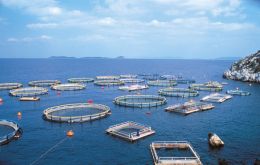
The booming world fish trade is generating more wealth than ever before, but countries must help small-scale fishers and fish farmers benefit too, says FAO.
-
Thursday, February 27th 2014 - 03:08 UTC
Argentine social programs praised by FAO and World Bank, says government

Argentina praised some of the “positive and favorable comments” by the United Nations Food and Agriculture Organization (FAO) and the World Bank regarding the country’s social and economic agenda, regretting that “certain” media “downplay” such news.
